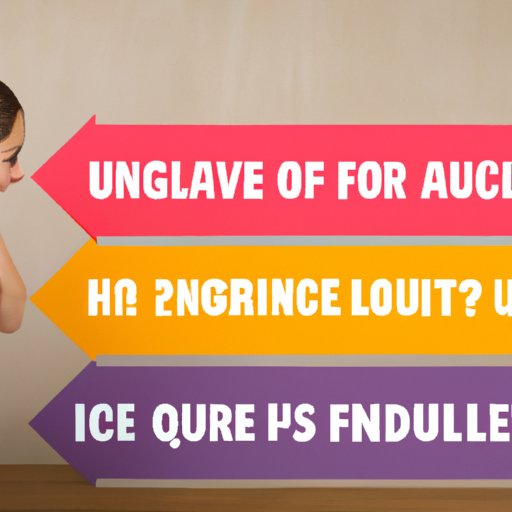Introduction
When you finance a car, you’re likely to be required to carry full coverage insurance. Whether or not you should purchase full coverage is an important decision that should be carefully considered. In this article, we will explore the pros and cons of full coverage insurance on a financed car, as well as some factors to consider when deciding whether or not to get it.

What to Consider When Deciding Whether to Get Full Coverage
When deciding whether or not to purchase full coverage insurance on a financed car, there are several factors to consider. These include your financial obligations, the cost comparison between full coverage and liability-only insurance, and the terms of your loan.
Financial Obligations
Before you decide whether or not to purchase full coverage insurance, it’s important to consider any financial obligations you may have. Your loan agreement may require you to carry full coverage insurance if you finance a car, and you may be obligated to pay for any damages if you don’t. Additionally, if you don’t have full coverage and your car is stolen or damaged beyond repair, you may still owe money on the loan.
Cost Comparison
Another factor to consider when deciding whether or not to purchase full coverage insurance is the cost difference between full coverage and liability-only insurance. Full coverage insurance can be significantly more expensive than liability-only insurance, so you’ll need to weigh the cost against the benefits of having full coverage.
Loan Terms
Finally, you should also consider the terms of your loan when deciding whether or not to purchase full coverage insurance. If your loan requires you to carry full coverage insurance, then you may not have a choice in the matter. However, if your loan does not require full coverage, you may be able to save money by opting for a less expensive liability-only policy.

The Basics of Full Coverage Insurance on a Financed Vehicle
Full coverage insurance typically includes three types of coverage: collision and comprehensive coverage, liability coverage, and uninsured/underinsured motorist coverage. Collision and comprehensive coverage protect you in the event of an accident or other covered event, such as theft or vandalism. Liability coverage pays for damage to another person’s vehicle or property if you are at fault in an accident. Uninsured/underinsured motorist coverage protects you if you are hit by a driver who does not have enough insurance to cover the damages.
Understanding Your Financial Obligations with Full Coverage on a Financed Car
When you purchase full coverage insurance on a financed car, you will have two primary financial obligations: deductibles and premiums. Deductibles are the amount of money you are responsible for paying out of pocket in the event of a claim. Premiums are the monthly payments you make to keep your insurance policy active.

How Financing a Car Affects Your Insurance Requirements
When you finance a car, you will likely be required to carry full coverage insurance. This is because lenders want to ensure that their investment is protected in the event of an accident or other covered event. If you fail to maintain full coverage, your lender may repossess your vehicle or take other legal action.
Comparing Costs: Full Coverage vs. Liability-Only Insurance on a Financed Car
When comparing the costs of full coverage and liability-only insurance on a financed car, it’s important to consider both the cost differences and the coverage benefits. Full coverage insurance is generally more expensive than liability-only insurance, but it provides more comprehensive protection in the event of an accident or other covered event. Additionally, many lenders require borrowers to carry full coverage insurance, so you may not have a choice in the matter.
Conclusion
In conclusion, whether or not you should purchase full coverage insurance on a financed car depends on your individual circumstances. It’s important to consider your financial obligations, the cost comparison between full coverage and liability-only insurance, and the terms of your loan before making a decision. Full coverage insurance is generally more expensive than liability-only insurance, but it provides more comprehensive protection in the event of an accident or other covered event. Ultimately, it’s up to you to decide whether full coverage insurance is the right choice for you.
Summary of Pros and Cons
Pros of full coverage insurance on a financed car include more comprehensive protection in the event of an accident or other covered event, as well as the peace of mind that comes with knowing that you are properly insured. Cons of full coverage insurance include the higher cost compared to liability-only insurance, as well as the potential for increased premiums if you have multiple claims.
Final Thoughts
Deciding whether or not to purchase full coverage insurance on a financed car is an important decision that should be carefully considered. It’s important to weigh the pros and cons of full coverage insurance, as well as your financial obligations and the loan terms, before making a final decision.
(Note: Is this article not meeting your expectations? Do you have knowledge or insights to share? Unlock new opportunities and expand your reach by joining our authors team. Click Registration to join us and share your expertise with our readers.)
